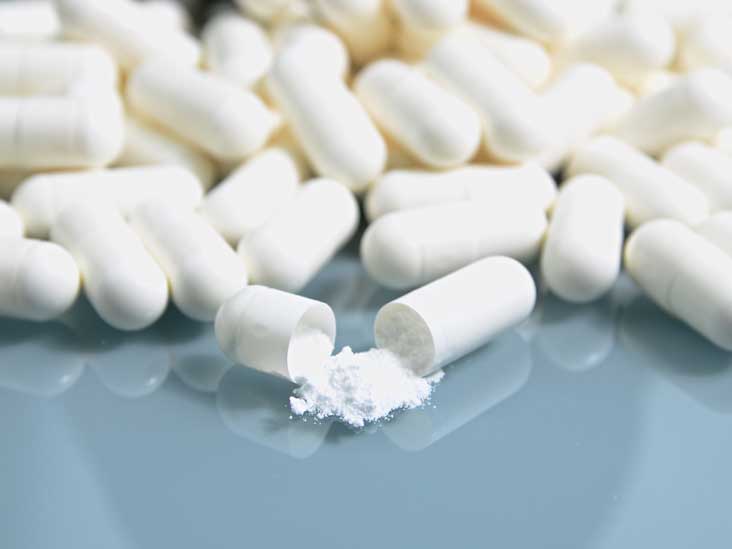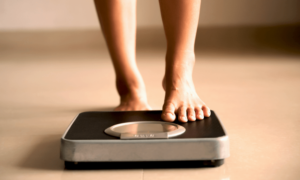Is Creatine necessary? Or can I skip it?
This post discusses whether Creatine is necessary or not.

Creatine is a non-protein, chemical molecule that all vertebrates produce biologically. Creatine is made up of three main amino acids: arginine, glycine, and methionine. This means that as long as you eat a protein-rich diet, you won’t need any additional creatine pills. However, if you seek to build your muscles, or if your diet lacks creatine, then you might benefit from taking creatine supplements.
Creatine for athletes and bodybuilders
Athletes require creatine supplements, as they cannot obtain the required levels of creatine from their diet alone. When we partake in high-intensity activity, the Adenosine Tri-phosphates in our muscles are used up fairly fast, leaving us weak and fatigued. The natural creatine reserve in our muscles is converted into Phosphocreatine. This Phosphocreatine is responsible for the conversion of Adenosine Di-Phosphate (ADP) into Adenosine Tri-Phosphate (ATP) molecules, the primary energy molecules. Thus, more ATP molecules are available for the muscle cells, which means you can train for a longer period of time.
Similarly in bodybuilders, creatine increases the performance levels of the individual. When the muscles are given more energy, they naturally use that energy to grow and replenish the muscle cells. Creatine also is responsible for increasing the production of anabolic hormones, which helps in the growth, development and rejuvenation of the muscle cells. Creatine also suppresses the levels of Myostatin produced by our body. Myostatin is a protein that keeps a check on muscle growth. Without Myostatin, the muscles can grow and develop exponentially (quite similar to Hulk)!
When the muscle mass increases, the creatine reservoirs in the muscles also naturally increase. This means that more creatine can be stored by the muscles, and the cycle continues. This is the reason why athletes and bodybuilders have a much higher muscle mass and muscle density than we do.
Creatine for vegetarians and vegans
Let’s face the bitter truth – Vegans and vegetarians do have a lesser amount of creatine in their diet. Creatine is stored in the skeletal muscles of all vertebrates, so meat-eaters, who consume creatine-rich animal flesh, naturally obtain more creatine from their diet. But that doesn’t mean you need to reach out for those overpriced tubs of creatine supplements yet.
Creatine is a non-essential component; this means that our body can produce this on its own. The raw substrates required for the production of creatine are Arginine, Glycine, and Methionine. These three amino acids can be obtained easily from a vegan diet by consuming a lot of proteins. Some of the common plant proteins include lentils, sprouts, tofu, peanuts, etc.
A majority of vegans and vegetarians can fulfil their daily creatine levels from their diet alone, but those who lead an active lifestyle and vegan athletes definitely should include creatine supplements as a part of their daily diet. Creatine monohydrate powder supplements can be consumed by vegans. As its production involves no usage of animal products.
Creatine for cognition
Creatine is not only necessary for physical endurance – in fact, but research also shows that individuals placed on a diet spiked with creatine supplements experienced better mental performance and reduced fatigue. Adenosine Tri-Phosphate (ATP) molecules are not only used by our body, but also by our brain. When you indulge in a rather intense study session, your brain uses as many ATP molecules as your muscles do during an intense workout. As creatine boosts up the production of ATP molecules, it can be said that creatine boosts our brains as well as our muscles!
Creatine for physical trauma
When our body experiences a physical injury, the ATP molecules in our body primarily focus on the regrowth and replenishment of the injured tissues. Hence, a large number of ATP molecules are diverted to the sight of energy. Consuming creatine boosts the production of ADP to ATP, which is then available for the injured tissue. Because of the increased amount of ATP molecules around the injured site, the healing process is also faster.
Creatine also helps in the recovery of muscular dystrophy and brain trauma, post-incident. Creatine increases the synthesis of anabolic hormones. Anabolic hormones play a vital role in the growth, replenishment and rejuvenation of the damaged body cells.
Various researches showed that the recovery period and the pain and lethargy from the physical injury have been reduced in patients who were given a creatine supplement alongside their diet. Creatine is now actively considered by doctors to be included as a part of the patient recovery diet.

